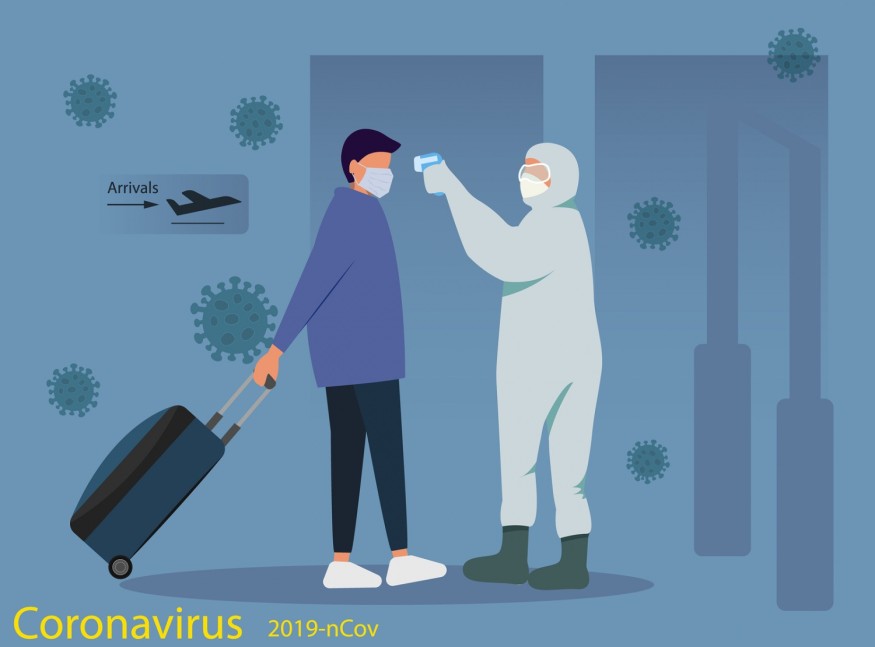Fingerpointing: Who Is Truly Responsible for the Diamond Princess?

In the aftermath of the Diamond Princess Covid 19 ordeal, the question of assigning responsibility is a complicated matter. Should it be the company, Princess Cruises, that owns the ship? Or the governments of the countries where the company is located, in the United States, or where the ship is flagged, in Bermuda, an island that is under the United Kingdom?
Or, in this situation where a possible coronavirus infection was discovered while the vessel was in the high seas, should it be the country, Japan, that was charitable enough to allow it to dock in one of its ports?
If one must point fingers, should China bear the responsibility for the disease transmission on the Diamond Princess, and the ensuing quarantine and infections? After all, the Covid 19 originated from one of its provinces.
Challenges that occur in ships while at sea need to be addressed immediately especially when the lives and safety of the people on board are at stake. Crucial decisions must be made without delay as time is of the essence. But on international waters where jurisdiction does not belong to any country, who will assume responsibility then?
Responsibility comes in many forms. The Princess Cruises, owner of the Diamond Princess, announced that it will refund all its passengers, including the cost of the cruise, payments for hotels before and after the cruise, on-shore excursions, and services requested. It will also pay for the medical facilities and hospital admissions even if unrelated to the Covid 19 outbreak. This is easy enough to do since only money is involved.
But for a country to allow an infected ship to enter its territorial waters, and accept the encompassing responsibility for all that follows, it's a tough decision to make.
When the Diamond Princess officers were informed that a passenger who had since disembarked in Hong Kong had been confirmed positive for Covid 19, they decided to cut the voyage short and return to Yokohama, Japan. There was no question of being denied permission. Prime Minister Abe Shinzo and his ministers did not have a moment's hesitation. It accepted the burden of making decisions and creating action plans without ample time to consider the implications.
Further, the government had to coordinate with the ship's company on the supply of provisions, medicines and other basic needs, and the logistics of transporting them. The testing of passengers and crew, numbering more than 3,700, the hospitalization of the sick, whether from Covid 19 or another illness, the isolation of the sick from the healthy, and transfers to medical facilities all added up to a nightmarish scenario. That the quarantine could not be perfect is understandable, even expected, given that the disease is a newly discovered one, and the infection was fast-moving.
It's worth mentioning that another cruise ship, the MS Westerdam, was refused entry to four other countries over fears of the coronavirus, even though the ship was virus-free. Hong Kong, Philippines, Guam, and Taipei had enacted ordinances barring certain vessels and individuals from entering through their ports. The Diamond Princess was already in Japan at that time and the government had its hands full; hence, it denied entry for the Westerdam.
But these countries could not be faulted nor held liable for refusing entry to the cruise ship. They were not legally bound to do so unless the ship was in dire circumstances. Ultimately, it comes down to moral and social responsibility. It's reflecting on how one's actions will affect the passengers and crew on the ship.
It is a country's leadership that accepts accountability for its actions. Social and moral responsibility rests on one concept - ethics, a system of principles that determine responsible behavior. Its underlying elements are compassion, courage, fairness, and accountability.
The Diamond Princess being in Hong Kong at that time, it will naturally seek nearby ports, and its distance to the United States and the United Kingdom naturally eliminate them from consideration. But being American-owned and British-flagged, and with 400 American citizens and 78 Britons on board, that should have elicited a response from these two governments. Yet, in spite of some passengers calling on Pres. Trump to help them, it took the most powerful nation on earth 13 days since the start of the ordeal to announce that it would send chartered planes to evacuate its citizens and only those who were negative for the disease.
The UK government sent a plane much later, earning for PM Johnson the tag of "part-time minister."
And, for all that the Japanese did to help the cruise's passengers and crew, medical experts from US agencies and institutions had a media frenzy, criticizing and calling the quarantine a failure of epic proportions. It would have been laughable were it not tragic that people who pride themselves on being experts in their fields have turned into mere armchair critics, no better than an aging uncle who sits in front of his television telling a star athlete what to do.
If one cannot be involved in the actual mission and participate in the medical and logistical operations, the least a government can do is to give moral support, express its gratitude, and shut up with its censorious statements.
Subscribe to Latin Post!
Sign up for our free newsletter for the Latest coverage!















